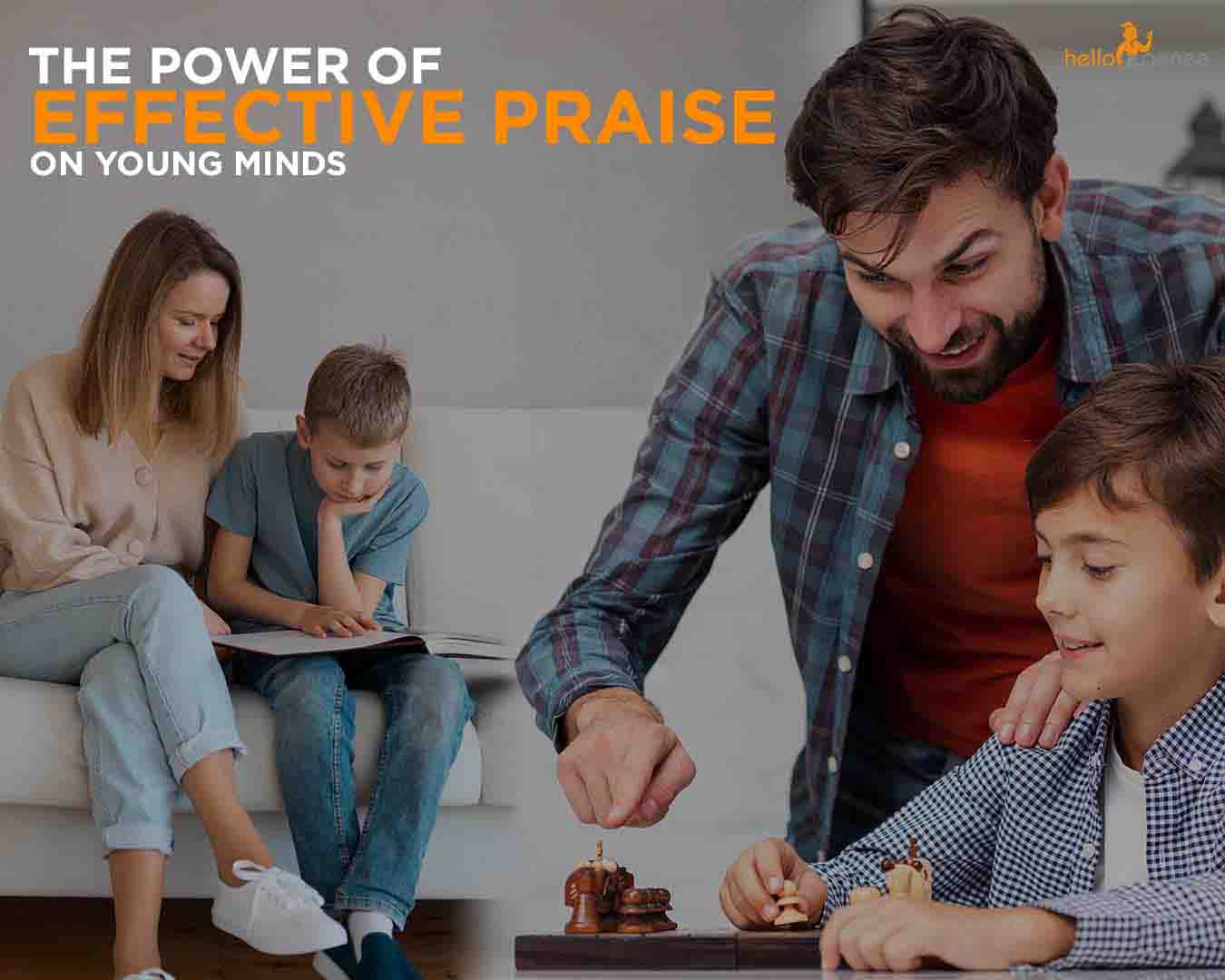THE POWER OF EFFECTIVE PRAISE ON YOUNG MINDS
Children typically deviate from a predicted behavioural pattern. With a courteous pat on the back or by stimulating activities, you may help them get back on track. But how do you go about achieving it? Praise is an excellent method for changing their attitudes in all areas. According to studies, praise has a positive impact on both academic attainment and mental health. When instructors begin to complement their students, they form a stronger relationship with them. However, there is a certain manner to go about it. Few praising strategies are more effective than others. Many institutions train teachers on how to reward students in the classroom.
METHODS TO PRAISE STUDENTS
1. POWER OF EFFECTIVE PHRASE
Positive comments are the most amazing technique to reward a learner. It can include any sentence, such as:
⦁ Very nicely done
⦁ You're getting better
⦁ This is incredible
⦁ Very well done
⦁ Excellent work
⦁ You’re progressing
⦁ This is amazing
And so forth. Academic achievement is frequently improved when students are encouraged. It may sound simple, but it can alter a young person who feels inadequate in comparison to others.
2. REWARD THE RIGHT WAY
Teachers can use simple gestures to commend students for their hard work and effort. Their acts are intended to make students happy and motivate them to achieve better. Teachers may create a chart with everyone's names on it and give gold stars or points to the best students. Instead of offering materialistic items, this will serve as a stronger motivation.
3. EFFORT RECOGNITION
Making their
work visible to the entire class is a great way to give them effective
feedback. As a result, the peers will be able to improve, while the best
performance will be delighted and confident. With acknowledgement comes a lot of
motivation to keep getting better. Most significantly, it inspires others to
believe that they, too, are capable of greater things.
4. APPLAUSE
Another
common way to praise is to applaud a student who has put in a lot of work on
the allotted assignment. It enhances the child's mental stability and promotes
healthy competitiveness among all participants. It is normal for a person to
feel good about themselves when the entire class acknowledges them. This, in
turn, helps individuals acquire strength and increase performance.
IMPACT OF
PRAISES ON STUDENT BEHAVIOUR
In a class
environment, praising improves overall learning. However, there are a few other
advantages
⦁ TRANSFORMS BELIEVES
Even a
below-average student can flourish with adequate supervision and effective
complimenting. As a result, complimenting is an art form that may alter a
student's perception of success and failure. Teachers can encourage children to
explore other zones and attain new heights.
⦁ COPING WITH FAILURES
Praise and pleasant words are essential for assisting struggling youngsters in overcoming setbacks. It improves their self-evaluation abilities, resulting in the intrinsic drive. Building resilience in children at an early age will help those overcome obstacles and setbacks. As a result, teachers must congratulate pupils even when they do not do well. This will guarantee that they do not lose heart and that they are in good enough shape to tackle future crises.
⦁ ENCOURAGEMENT
Encouraging fresh ideas in the classroom is an effective method for getting youngsters to learn things that they are interested in. This increases their drive to study and leads to greater success. You've probably noticed that many pupils have a favourite topic. It is not because they enjoy the material, but rather because of a good instructor who has presented it engagingly.
⦁ LEARNING FROM FAILURES
When students learn to praise effectively in a variety of situations, they begin to see mistakes and setbacks as stepping stones to progress. They are not afraid of falling and view them as fresh opportunities to learn new things in life. Their viewpoint on how they failed will serve as life lessons for them. Students utilize their failures to motivate themselves to study more in the future.
⦁ SEEKING CHALLENGES
When youngsters are acknowledged in front of their classmates, they begin to seek unique demands. They do more with a sense of belief, which eventually leads to increased capability. Setting lofty objectives is a result of praising kids and encouraging them to dream big to accomplish more.
⦁ LEARNING FROM FAILURES
When students learn to praise effectively in a variety of situations, they begin to see mistakes and setbacks as stepping stones to progress. They are not afraid of falling and view them as fresh opportunities to learn new things in life. Their viewpoint on how they failed will serve as life lessons for them. Students utilize their failures to motivate themselves to study more in the future.
WRAPPING UP
Praise and motivation will improve youngsters' efforts in all they do. They will not give up, no matter how difficult or hard the work. They push themselves to their breaking point without stopping. Most significantly, praise helps kids build the confidence to face life's challenges. Furthermore, research shows that youngsters who are rewarded and inspired are more inclined to work hard and strive for achievement in whatever way they can.












Comments